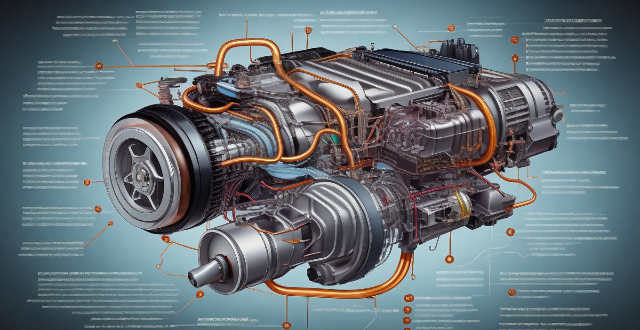The article discusses how different types of engines affect car performance test results, considering factors like engine type, size, power output, efficiency, environmental impact, and maintenance requirements. It highlights the unique characteristics of petrol, diesel, electric, and hybrid engines and their respective advantages and disadvantages in terms of performance, fuel economy, emissions, and maintenance. The article suggests that these factors should be considered when choosing an engine for a car purchase to ensure it meets the buyer's needs and expectations in terms of performance.

How Different Types of Engines Affect Car Performance Test Results
When it comes to car performance tests, the type of engine used in a vehicle can have a significant impact on the results. In this article, we will explore how different types of engines affect car performance test results and what factors you should consider when choosing an engine for your next car purchase.
1. Engine Type
The first factor to consider is the type of engine used in the vehicle. There are several types of engines available, including:
- Petrol engines
- Diesel engines
- Electric motors
- Hybrid engines
Each type of engine has its own unique characteristics that can affect performance test results. For example, petrol engines are known for their high power output and quick acceleration, while diesel engines are more efficient and provide better fuel economy. Electric motors offer instant torque and zero emissions, while hybrid engines combine the benefits of both petrol and electric power sources.
2. Engine Size and Power Output
The size and power output of an engine also play a crucial role in determining car performance test results. Generally, larger engines with higher power outputs tend to perform better in acceleration tests, while smaller engines with lower power outputs may struggle to keep up. However, it's important to note that larger engines often come with increased weight, which can negatively impact other aspects of performance such as braking distance and handling.
3. Efficiency and Fuel Economy
Another factor to consider is the efficiency and fuel economy of the engine. Diesel engines are typically more efficient than petrol engines, meaning they can travel further on a single tank of fuel. Electric motors offer even greater efficiency, but their range is limited by battery capacity. Hybrid engines strike a balance between fuel economy and power output, making them a popular choice for many drivers.
4. Environmental Impact
The environmental impact of an engine is also an important consideration when evaluating car performance test results. Electric motors produce zero emissions at the tailpipe, making them a more eco-friendly option than traditional petrol or diesel engines. Hybrid engines also offer reduced emissions compared to their non-hybrid counterparts. However, it's worth noting that the production of electricity used to charge electric vehicles can still have an environmental impact depending on the source of that electricity.
5. Maintenance and Reliability
Finally, the maintenance requirements and reliability of an engine should be taken into account when evaluating car performance test results. Diesel engines generally require more frequent maintenance than petrol engines due to their higher compression ratios and the nature of diesel fuel itself. Electric motors have fewer moving parts than traditional combustion engines, which can lead to lower maintenance costs over time. Hybrid engines combine elements from both petrol/diesel and electric motors, so their maintenance requirements can vary depending on the specific model.
In conclusion, the type of engine used in a vehicle can have a significant impact on car performance test results. When choosing an engine for your next car purchase, consider factors such as engine type, size and power output, efficiency and fuel economy, environmental impact, and maintenance requirements. By taking these factors into account, you can make an informed decision that will help ensure your new car meets your needs and expectations in terms of performance.